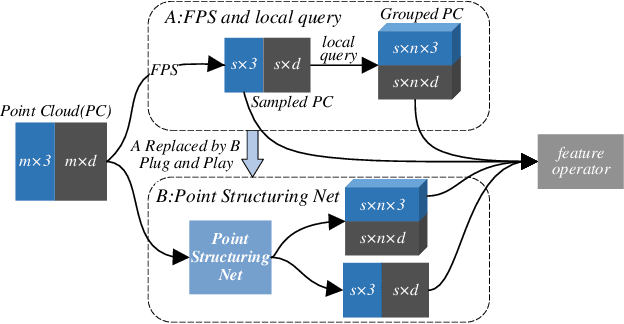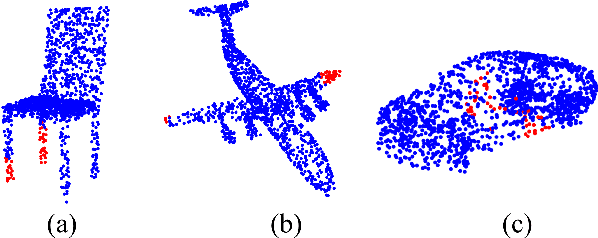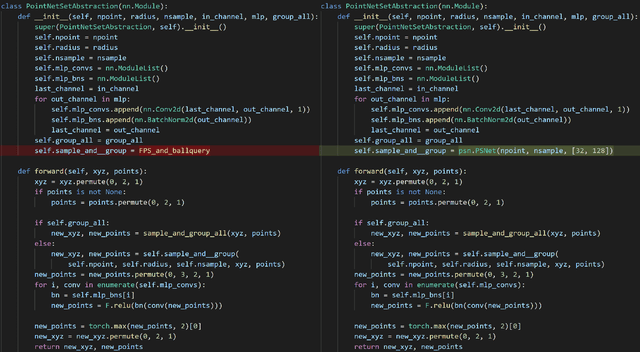PSNet: Fast Data Structuring for Hierarchical Deep Learning on Point Cloud
Paper and Code
May 31, 2022



In order to retain more feature information of local areas on a point cloud, local grouping and subsampling are the necessary data structuring steps in most hierarchical deep learning models. Due to the disorder nature of the points in a point cloud, the significant time cost may be consumed when grouping and subsampling the points, which consequently results in poor scalability. This paper proposes a fast data structuring method called PSNet (Point Structuring Net). PSNet transforms the spatial features of the points and matches them to the features of local areas in a point cloud. PSNet achieves grouping and sampling at the same time while the existing methods process sampling and grouping in two separate steps (such as using FPS plus kNN). PSNet performs feature transformation pointwise while the existing methods uses the spatial relationship among the points as the reference for grouping. Thanks to these features, PSNet has two important advantages: 1) the grouping and sampling results obtained by PSNet is stable and permutation invariant; and 2) PSNet can be easily parallelized. PSNet can replace the data structuring methods in the mainstream point cloud deep learning models in a plug-and-play manner. We have conducted extensive experiments. The results show that PSNet can improve the training and inference speed significantly while maintaining the model accuracy.
 Add to Chrome
Add to Chrome Add to Firefox
Add to Firefox Add to Edge
Add to Edge